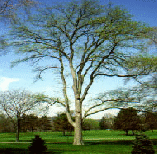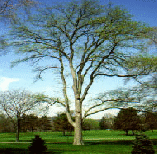Posted by Tree In A Box on 11th Jun 2016
Is your Movie Streaming Killing Trees?

While studies have not proven that the wireless radiation from all those Wi-Fi routers out there are harmful to humans. Sadly the same can not be said for our closest neighbors, the trees. A study performed by Wageningen University investigated strange findings where trees in areas with high Wi-Fi activity (urban areas of course were the worst with all those connected folks trying to find that nearest hot spot) were suffering from symptoms that couldn’t be tied to typical bacterial or viral causes. Some of these symptoms included bleeding, fissures in the bark, death of parts of the leaves, and abnormal growth.

So like any other good scientific experiment, the researchers donned their white lab coats, put on their goggles and in their best maniacal laughter said “Let the testing begin!” OK, maybe not exactly like that. They followed the scientific method, took 20 ash trees and exposed them to various kinds of radiation for three months.
What pray tell did the trees reveal? The pore trees that were exposed to Wi-Fi radiation displayed telltale signs of radiation sickness. In the Netherlands, apparently 70% of urban trees are affected and are suffering from radiation poisoning, this is up from only 10% five years ago. As a society we strive to become more mobile, cutting the tethers of wired connections through the use of Wi-Fi hotspots around town and even in our cars.
Perhaps we may have overlooked the fact that trees might not appreciate the ability to stream HD forest scenery or Pandora on their mobile device. Oh right, they do not have cell phones and tablets because they are trees!
Those trees lucky enough to be living in the country in rural or non-urban environments seem to be pretty much unaffected, showing no signs of the radiation sickness. In theory however, all deciduous trees in the Western world could be affected.
The research is still on-going with several more studies in the works to figure out the precise effects of Wi-Fi radiation on plant life. While there are currently no solutions offered at this time. One thing we as individuals could do is to limit the amount of on-line time, for the sake of your tree.
The study did not mention Wi-Fi affects on coniferous trees, why not do an experiment of your own by planting one of the coniferous tree kit species offered by Tree In A Box and see how well they do while watching Netflix.

